Current Projects
Country: Russia
Showing 1 - 5 of 5
5 results found
To support the development of national fuel economy policies in 20 countries, 6 countries through GEF-5 STAR Allocations and 14 without GEF funding, using existing tools developed with GEF-4 support (examples are the fuel economy baseline calculation methodology and online GFEI toolkit). In addition, to support coordination of the 20 country projects at the regional level to ensure that results are disseminated to other countries within the region. This will result in reduced vehicle fleet CO2 emissions in these 20 countries inline with the Global Fuel Economy Initiative's target of a 50% improvement of the overall global fleet fuel economy by 2050.
The project’s primary goal is to carry out in-depth surveys of HCFC consumption and, where applicable, production in Article 2 countries with economies in transition (CEITs) in Europe and Central Asia (specifically Azerbaijan, Belarus, Bulgaria, Kazakhstan, the Russian Federation, Tajikistan, Uzbekistan and the Ukraine), and identify needs for further activities to assist these countries to remain in compliance with their Montreal Protocol obligations.
Objective1: To promote further development of the national CHM through improvement of biodiversity information exchange under the priority thematic programs and cross-cutting issues; Objective 2: To identify priority thematic databases (information systems), to be compiled by integration of the already existing thematic datasets on the basis of common standards and formats, and to establish their linkage to the Web in order to facilitate fast public access to the information. Objective 3: To develop capacity and establish CHM network at the sub-national level, including regional (sub-national) and thematic focal points and to make plans and recommendations on how Russia will sustain the CHM from in country resources. Objective 4: To unify information support for decision making through further development of the institute of experts, establishment and maintenance of the information requests service. Objective 5: To develop the scientific and technical collaboration support mechanism on the basis of national and international experience through monitoring of potential partners' needs. Objective 6: To develop CHM to operate at an international level, including a dual language website.
This project is designed to establish a dedicated financial facility for energy efficiency and renewable energy in Eastern Europe and CIS that can serve as a vehicle for the large-scale participation of private sector investors in partnership with public entities. The proposal is to support the development of a US$ 250 million public-private equity Fund that will be able to complement other funding schemes (including those implemented or contemplated by the GEF and/or other supporting institutions) and, as a result, leverage an investment volume of upt to US$ 2 billion for energy efficiency and renewable energy projects.
This project will develop and implement integrated ecosystem management strategies in the Russian Arctic in two to three model areas, and strengthen the capacity of federal and regional/local authorities, indigenous people and other stakeholders in sustainable biodiversity management.
Showing 1 - 5 of 5




